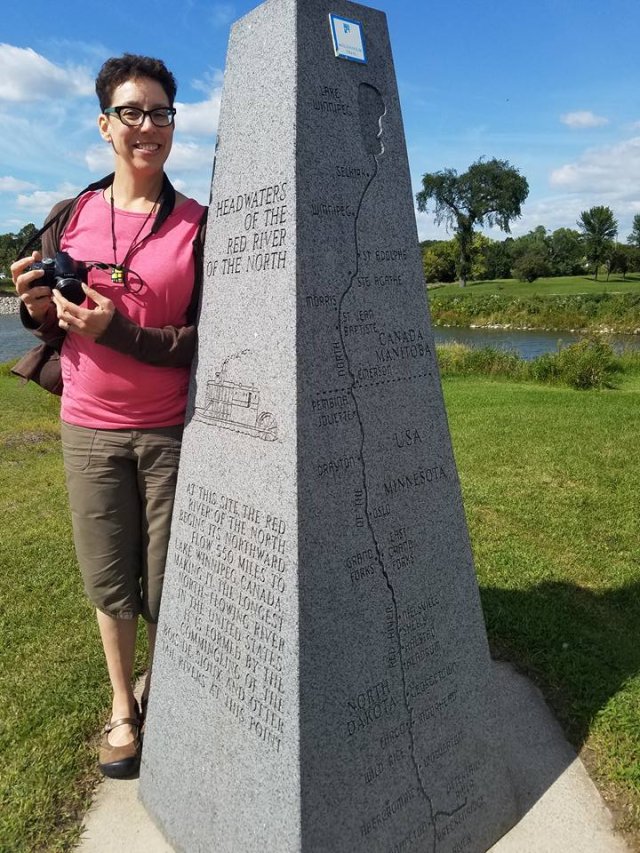Meet EPA Researcher Katie Williams, PhD

Katie is an EPA researcher studying how individuals, organizations, and agencies are engaged in environmental management in the Great Lakes Areas of Concern program. To understand these dynamics, Katie researches policies, learns about how different people use information and knowledge, and maps institutional processes.
Tell us about your background.
My undergraduate degree is a BA in environmental science and physical geography from Carroll College in Waukesha, Wisconsin. After spending time working in local government and for nonprofit organizations in fair housing and advocacy, I went back to grad school for a masters and PhD in geography from University of Wisconsin-Milwaukee.
When did you first know you wanted to be a scientist?
I knew I wanted to be a scientist when I was a kid. I used to keep a cloud and weather notebook. It wasn’t until I was helping doctors educate policymakers about access to a drug for their patients that I realized I could do that kind of work for the environment.
What do you like most about your research?
I like my research because it combines all my experiences. I have worked with volunteers, in policy and local government, and in civil rights enforcement. It is not a huge leap to combine my practical skills with research methodologies on an interdisciplinary team. My research sits at the intersection of community or stakeholder engagement, biophysical research, and collaboration.
How does your science matter?
My science matters because I am always trying to understand the intersection between scientific research, community values, and agency practice. The goal is to find ways to make sure our scientific research is usable to those who might apply it.
I work to identify methods to help different perspectives relate to each other. For example, it can be difficult for agencies to communicate with communities because the agencies talk about a project (i.e., a thing to manage) and communities talk about a place (i.e., home). This kind of research is especially important because it helps to ensure that agencies act local and recognize traditional ecological knowledge.
If you weren’t a scientist, what would you be doing?
Before I was a scientist, I worked with volunteers in many different contexts. I would likely still be working with volunteers because they are awesome. Volunteers can do amazing things when encouraged and when barriers are removed.
What advice would you give a student interested in a career in science?
The advice I would give is don’t assume you can’t be a scientist or whatever profession you would like to pursue. When I originally graduated from college, I wanted to be a professor in geography but I didn’t think that I could be, so I started down a very different road. At the same time, I am grateful for that road. So, my real advice is to go through every open door and soak up every experience. You never know where opportunities will lead.
What’s your role in the Pickle Pond research project?
I am one of the principal investigators of the Pickle Pond project. I have contributed to research design and theory application. I also analyze the aesthetics monitoring data and help conduct intercept surveys.
Editor's Note: The opinions expressed herein are those of the researcher alone. EPA does not endorse the opinions or positions expressed.
